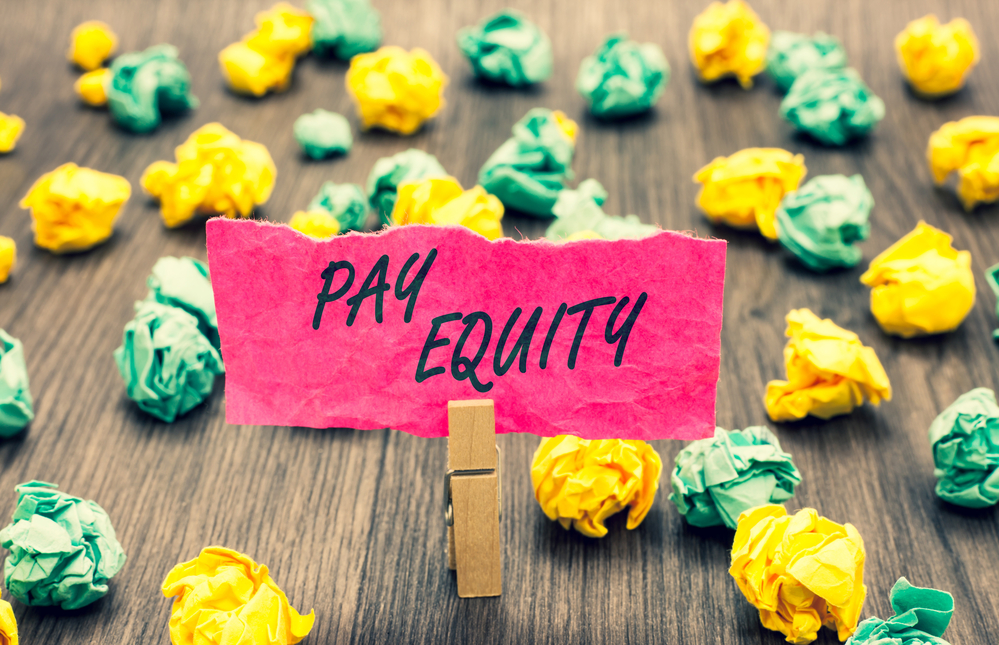In the realm of global mental health, a movement toward equity and justice is gaining momentum, with a focus on recognizing and compensating the unique expertise of individuals with lived experience of mental and emotional distress and/or psychosocial disabilities.
A new article by Claudia Sartor of The Global Mental Health Peer Network demands a critical reform: equitable pay for individuals with psychosocial disabilities who contribute their expertise to the Movement for Global Mental Health.
Sartor’s recent article, grounded in the principles of human rights and equity, argues for a reform that is both moral and pragmatic: the expertise derived from the lived experience of mental health conditions should be compensated on equal footing with traditional professional expertise. This demand challenges a persistent inequity within global mental health, where the invaluable insights of individuals with firsthand experience often go uncompensated, a situation that Sartor deems both unjust and detrimental to the cause.
“Despite the established consensus on the experiential value of the expertise of people living with mental health conditions, there remains a gap in acknowledging their monetary value in the global mental health sector in service delivery and co-production of projects and programs. Therefore, reducing opportunities for lived experience advocates to drive systemic change and make recommendations for positive change,” Sartor writes.
“Appreciating the current evidence on international law and human rights instruments, people with lived experience and peer-led organizations continue their advocacy efforts for equal and fair treatment of persons with disabilities, including psychosocial disabilities, for reasonable, fair, and equal remuneration for work done.”
Her argument aligns with international human rights directives, such as the United Nations Convention on the Rights of Persons with Psychosocial Disabilities, framing the inclusion of lived experience not only as beneficial but as a fundamental human right. Sartor illustrates that meaningful participation by individuals with psychosocial disabilities can enrich policy, enhance service delivery, and foster more resilient and rights-based mental health systems.
 The disability-justice movement has long advocated for the inclusion of service users and people with psychosocial disabilities. Sartor’s work underscores the need for equitable pay and decision-making power for those with lived experiences. This holistic approach insists on their involvement in every aspect of advocacy work, from the drafting of policies to the design and evaluation of programs.
The disability-justice movement has long advocated for the inclusion of service users and people with psychosocial disabilities. Sartor’s work underscores the need for equitable pay and decision-making power for those with lived experiences. This holistic approach insists on their involvement in every aspect of advocacy work, from the drafting of policies to the design and evaluation of programs.
This emphasis on equitable treatment resonates with recent findings from the World Health Organization and The Lancet Commission, highlighting the need for increased leadership from those with lived experiences. Such recognition heralds a transformative potential for the mental health sector to empower rather than merely serve those with psychosocial disabilities.
Linking the recognition of lived experience expertise with critical legal instruments, including the Universal Declaration of Human Rights and the International Covenant on Economic, Social, and Cultural Rights (ICESCR), the article reinforces the principle of equal pay for equal work. It calls for a rights-based approach to health that is in harmony with the 2030 Agenda for Sustainable Development and Universal Health Coverage, advocating for no one to be left behind.
The principles for including those with lived experiences in decision-making emphasize creating an environment of mutual respect and trust, where participants feel valued for their skills and dependability. Openness and clarity about the project details and engagement processes are key, as is ensuring a non-discriminatory and inclusive atmosphere. True inclusion means avoiding tokenistic gestures and instead promoting genuine diversity and equality across all demographics, such as age, race, gender, and religion.
Accommodations should be flexible to meet participants’ needs, especially those related to mental health, to enhance productivity and involvement. Empowering participants means involving them from the project’s beginning, valuing their input, and maintaining clear communication about expectations, timelines, and deadlines.
The Global Mental Health Peer Network (GMHPN) is at the forefront of championing equal pay for those with lived mental health experiences who contribute to the field. The organization is dedicated to enhancing the leadership abilities, empowerment, and development of these individuals on a global scale.
Several members from GMHPN’s leadership committee from various countries have expressed how being compensated has impacted them. For example, Muskan Lamba from India pointed out the necessity of acknowledging the cultural diversity of those with lived experiences:
“Our world is becoming increasingly culturally diverse, and it’s really important to factor in the socio-cultural backgrounds of people with lived experience while engaging them in projects. Society and culture massively impact people’s lives and well-being, deeply intertwining with—their worldview, decision-making abilities, interactions with others, language, identity, and the social and cultural stigmas that often come attached—all of which can enable a person to propel a project forward, or hold them back in their potential.”
Sartor’s article brings to the fore a critical issue: recognizing the lived experience of mental health conditions as a unique and valuable form of expertise deserving of equitable compensation. This recognition is essential for fostering an inclusive, equitable, and empowered mental health sector. The article concludes with a note of optimism, anticipating that with strategic planning and commitment to these principles, transformative change on a global scale is within reach.
****
Sartor C. (2023). Mental health and lived experience: The value of lived experience expertise in global mental health. Global mental health (Cambridge, England), 10, e38. https://doi.org/10.1017/gmh.2023.24 (Link)















Really? Even this blog, where people write for free, doesn’t treat lived experience the same as “critical clinicians”. What THAT is going to take is, first, to ELIMINATE developmental centers and exploitive “nonprofits” like Goodwill that either pay people with disabilities pennies for piece work or brag “WE PAY MINIMUM WAGE!” Then, all the “peers” need to stand up and stop being grateful for a low-wage career that pretty much guarantees they will die in poverty for the opportunity to “help others like them.” As long as peple put up with this discriminating garbage, nothing will change.
Report comment
Ya. I never even wondered before why the clinicians get paid for their articles here and we don’t? I am so used to working for free that I don’t even think about it anymore.
Report comment
OMG! If “clinicians” are getting paid for their articles or interviews on MIA, I’ll have to rethink making donations.
Report comment
I should clarify, I don’t think the clinicians get paid, per se, but they do get the front page of the blog while lived experiences gets “personal stories”, as though we are not capable of writing thoughtfully on the issues of our people, but only our own little simple opinions on our limited life events.
Report comment
Hi, Blogs Editor here. I just want to clarify that we are not able to pay authors for blogs or personal stories at this time, although I would love to be able to do so.
I also want to add that blogs and personal stories appear in the same section on our front page, run as our featured story the day they are published, and are featured and promoted on social media in the exact same way. Personal stories is its own section to ensure that we are able to feature very important lived experiences every week, and we have a dedicated editor for that purpose because we consider this one of the most fundamental elements of Mad in America.
Finally, I want to note that people with lived experiences can and do write blogs for us, and I am always happy to see further submissions, which you can send to the [email protected] email address.
Report comment
Hey there, Pete. Would you mind telling me whether or not clinicians are paid by MIA for writing articles or sitting for interviews? Cause I’d really like to know…
Report comment
Hi Birdsong, as I mentioned, no, bloggers do not receive payment at this time. Nor do people sitting for interviews. Again, this is true whether they are “clinicians” or not.
Report comment
But you haven’t answered the first part of my question: are “clinicians” paid for writing articles on MIA???
Report comment
I think the answer is no. No one is paid a fee for writing for MIA, as far as I am aware.
Report comment
No one should waste their time waiting for Big Daddy to give them “a place at the table”; it’s not worth waiting for. Much better to bypass the system completely.
Report comment
Well, I for one am looking forward to being paid fairly for my lived experience. I hope it happens before I wind up living in a car but I doubt it.
I tried to enroll in the SSA Ticket to Work program for people on SSDI. I called and gave my email and then received an email from the SSA listing a dozen organizations that help people find jobs through the Ticket to Work program. I started contacting the agencies, but it was a maze of error messages, emails that bounced back, broken URLs and voicemails never returned. The one person who did call me back said, “Ticket to Work. That sounds like a Social Security Administration program.” She gave me a number for the local SS office. I didn’t bother calling her back to say that I got her number from the SSA. I’m a masochist, but not that much of a masochist.
I can’t afford my apartment anymore so I’m shopping for a car to live in. It’s not “mental illness” that leads to a dead end life. It’s relying on the mental health system in any way, shape or form. They make sure you’ll be ostracized from the rest of society so you can spend the rest of your life begging the system for help that never arrives.
Report comment
I really enjoy your comments. My email is my name @gmail.com. I’m aware of some cheaper apartments…I think we are close geographically.
Report comment
Thank you 🙂
Report comment
Who doesn’t have lived experience? anyone know anyone that hasn’t suffered? In my limited experience working in services the experience of suffering is often what drives people into these sorts of roles.
Report comment
I’ve heard that bullshit line before. I didn’t buy it then, and I’m not buying it now. Medicine isn’t the only thing that should GET THE HELL OUT of the “helping professions” — SO SHOULD THE MONEY —
Report comment
In that case, why do only some people get slapped with stigmatizing labels and told they need “help” (drugs) and “behavioral therapy” (shame and gaslighting)?
Report comment
DAMN GOOD QUESTION.
Report comment